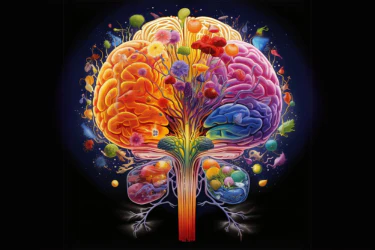Lifestyle Changes That Can Help Alleviate Symptoms of Depression
Depression impacts your feelings, thoughts, and behaviors, and it can also lead to a range of mental and physical health issues. While professional treatment is a primary course of action, certain lifestyle adjustments may complement a therapeutic plan. Here are some lifestyle changes to help alleviate symptoms of depression:
Physical Activity
Regular physical activity increases the production of endorphins, which are neurotransmitters that can produce feelings of well-being. Even moderate exercise, like a brisk walk for 30 minutes several times a week, introduces a structured routine into the day. Engaging in physical movement is a tangible activity you can initiate, and it allows you to control it.
There are many types of exercise available, so you can find one that matches your preferences. You might try team sports, solo workouts, or outdoor activities. When you find an activity you enjoy, you are more likely to stick with it over time.
Exercise also offers a way to redirect thoughts when you have depression. Activities like running, swimming, or cycling demand focus on physical movement and breathing, offering a temporary distraction from persistent negative thought patterns. This mental shift, combined with the physiological effects of movement, makes physical activity a useful component of a daily regimen.
Balanced Diet
The food you eat has a direct connection to your brain function and mood. A balanced diet rich in nutrients supports overall brain health, while processed foods high in sugar and unhealthy fats may have a negative impact. Focusing on whole foods, including fruits, vegetables, lean proteins, and whole grains, provides the body with the building blocks it needs to function properly.
Making dietary changes does not have to be an overhaul of your current eating habits. You can start by incorporating one new healthy food into your meals each day, or you might swap a sugary drink for water. These small, manageable adjustments add up over time, and they create a foundation for more substantial nutritional improvements.
Consistent Sleep Schedule
A regular sleep-wake cycle helps regulate the body’s internal clock, which influences mood and energy levels. While establishing this routine takes time, the structure it provides is beneficial. You can aim to go to bed and wake up at the same time every day, even on weekends. To support a consistent schedule, you might:
- Create a relaxing pre-sleep routine.
- Keep the bedroom dark and quiet.
- Avoid screens for an hour before bed.
Reduced Alcohol and Drug Use
Alcohol and recreational drugs can interfere with brain chemistry and may worsen symptoms of depression. Although they might seem to offer temporary relief, their use can disrupt sleep, increase anxiety, and negatively interact with medications. Abstaining from these substances removes a variable that complicates mood regulation.
Find Therapy for Depression
Lifestyle changes can support well-being, but they do not replace professional treatment for depression. Working with a qualified mental health professional provides a structured, evidence-based approach to managing symptoms. If you are experiencing symptoms of depression, please reach out to a licensed therapist or a local mental health professional to discuss your options.






